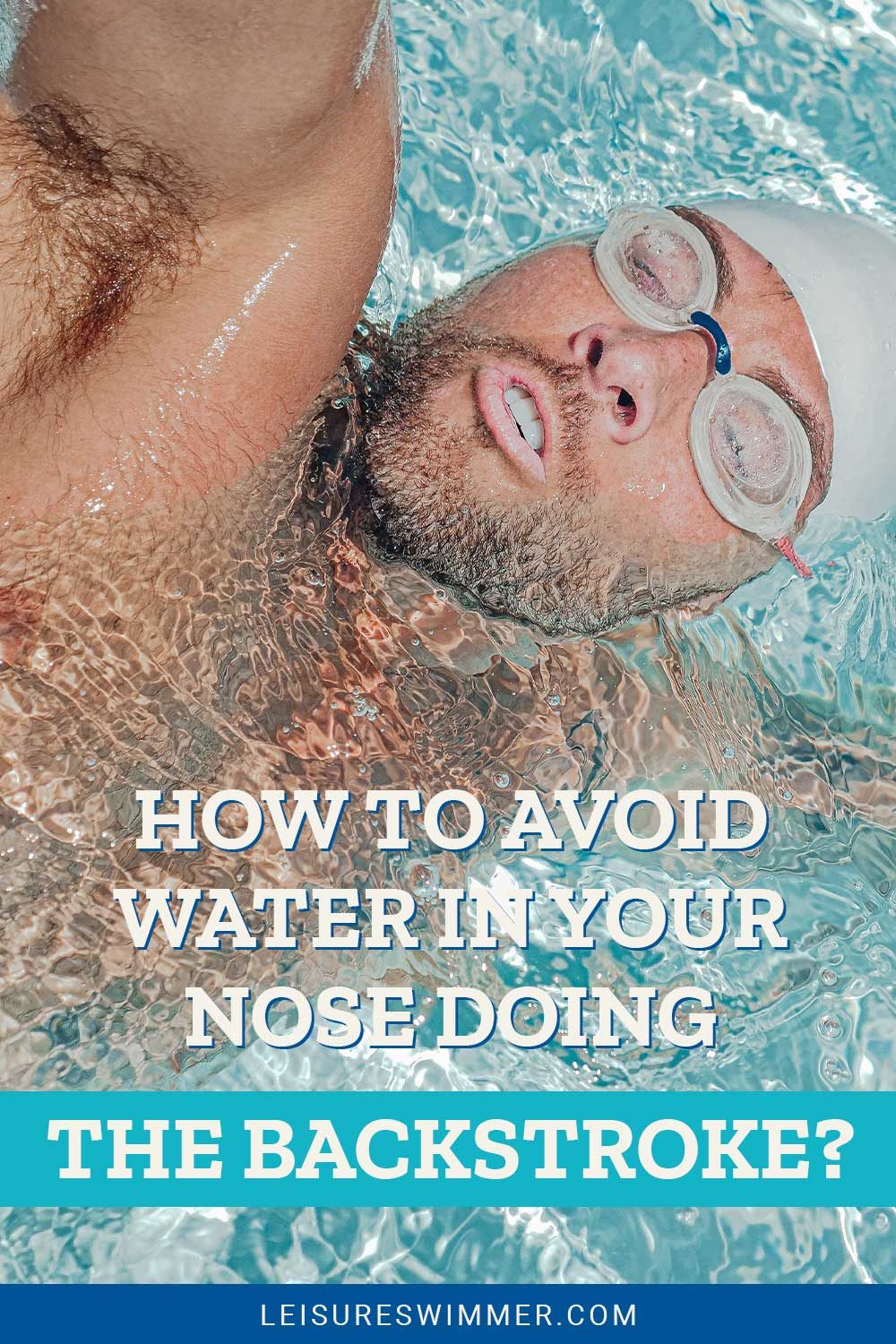How To Avoid Water In Your Nose Doing The Backstroke?
We may earn commissions for purchases made through links on our site. Learn more on our about us page.
There will be many little gadgets and techniques for the swimmer to keep water out of the nasal passages. The least expensive route will be to practice keeping your face above water; this expertise will be much more valuable than a close pin.
Otherwise, there are particular goggles brands with a nose-pinching feature or completely covering the nasal passages.
There will also be self-standing options, nose-pinching gadgets, and accessories to help a swimmer keep their lungs free of the water the swimmer is in.

How Should You Practice Breathing Techniques?
The first place to start is in the local pool; while holding onto the side of the pool, perform the kicking practices until horizontal with the ceiling. From this position, practice breathing techniques for casual and race conditions.
This will give you a chance to feel the difference in pace and the requirement to hold your breath every so often in a speed swimming situation.
After getting comfortable with practicing stationarily, attempt a lap using the new breathing techniques practiced. During this step, most learning will take place; be sure to focus on the best results.
What is the Best Option to keep Water out?
As mentioned above, the best technique will be to learn to keep your face above water and breathe underwater. Once mastered, a swimmer will no longer cognitively have to think about breathing but act out of instinct.
Another very good second option will be to get goggles with a built-in feature to help pinch the nasal passages closed, sealing out water and other matter.
These come in the form of racing goggles and scuba gear goggles styles and can be the best option for beginner swimmers, especially concerning children.

Can Nose Plugs Help You?
When concerning nose plugs, there are going to be many different types of them to choose from, all of which will help a swimmer.
The design differences accommodate humanity’s various needs, meaning that some devices will pinch the nasal passages closed, and others will use plugs inside the nose to block water.
Many Collegiate, professional, and Olympic-level swimmers will use these small apparatuses to prevent splash water from disrupting their breathing; during a race, the smallest things can be the difference between winning and second place.
How Long Does it Take to Learn How to Keep Water out?
This will be a different time scale for everyone. Olympians will have been learning how to perfect these techniques since childhood, while others will have to learn at an older age, which can take a few classes or a few years.
For example, learning to swim with a nose plug can be used while perfecting specific breathing techniques will take regular swimming routines to master.
Becoming proficient at keeping water out of the nasal passage will be instinctual, but consider taking swimming lessons if you are confident in your learning ability.
How do Pro Swimmers keep Water Out?
Most professionals will go with a goggle designed for racing or more extended underwater needs.
However, Olympians, tri-athletes, and other professional swimming athletes will vow for simple eye goggles with a strap-like gadget that will pinch the nasal passages closed, forcing the swimmer to breathe from the mouth but keeping water out of the respiratory system.
Professional scuba divers and underwater spelunking adventurers will instead have a full mask that covers the nose completely but allows for a mouthpiece to comfortably provide air through the mouth.
The best natural swimmers have a breathing technique that requires only discipline and excellent cardiovascular health to master.
Final Thoughts on How to avoid getting Water in Your Nose while Performing a Backstroke
It is a natural instinct to want to keep water out of your lungs, drowning is not an option, and you will notice these instinctive reactions when swimming.
However, in order to know you will be able to keep water out of your nose, the best plan would be to learn breathing techniques because nose plugs will only sometimes be available (unless you are that good at preplanning).
Otherwise, depending on your type of swimming style or goggles, be sure to spend the money on a quality pair and nose plugs if needed.
For beginners, you will be recommended to get one of these nose plugs and learn how to use them alongside learning swimming techniques.


